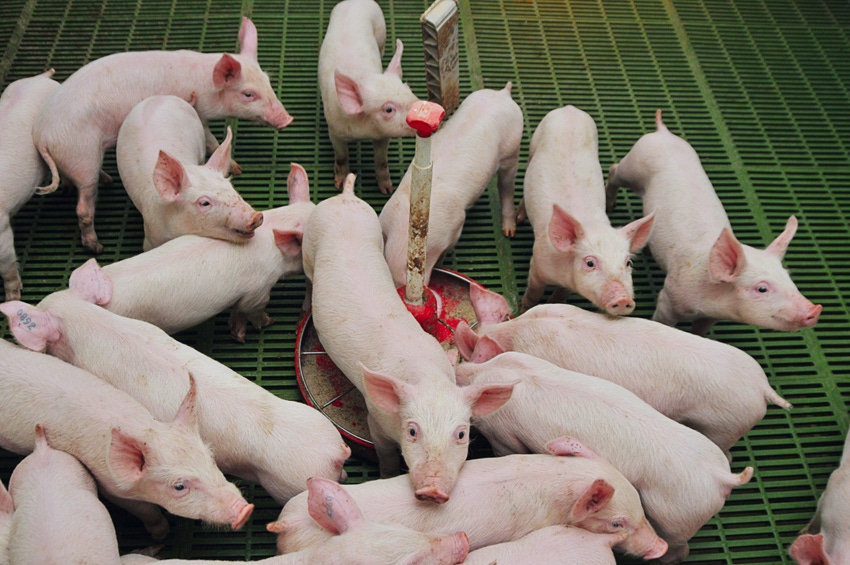Using synchronized batch fermentation, process degrades antinutritional factors in swine feed and boosts lactic acid production.
May 14, 2019

There are many benefits to feed fermentation in pig farming, such as decreased feed costs, improved feed digestibility, reduced use of antibiotics and reduced nitrogen and phosphorus depositions into the soil, according to Germany-based WEDA Dammann & Westerkamp GmbH.
For these reasons, Porlaso, an Argentinian partner of WEDA, developed a new fermentation method in cooperation with Dr. Ronald Scholten of Dr. FERM in the Netherlands.
The basic concept aims to enable pig farmers to ferment raw, full-fat soybeans, among other feedstocks, as a high-value feedstuff in their own farming operations, the announcement said.
WEDA said the method is based on a sophisticated combination of temperature and specific bacteria and enzymes — a fermentation process WEDA conceived that has shown results in pig farming.
The method works according to synchronized batch fermentation in which two fermenters process the raw material in turns, WEDA said. Hygiene plays a large part in this process in that one fermenter always undergoes cleaning, while the fermentation process goes on in the other.
At its core, the new fermentation method also aims to achieve an efficient process for the degradation of anti-nutritional factors contained in raw soybeans, the company explained. Currently, these substances have to be eliminated using a complicated roasting or extrusion method. The risk, however, is that not all anti-nutritional factors may be completely deactivated at all times with roasting or extrusion, WEDA noted.
The company said another benefit of fermentation is that, in contrast to other methods, it generates a high portion of lactic acid, which promotes gastrointestinal health in animals and significantly reduces salmonella and Escherichia coli.
Source: WEDA Dammann & Westerkamp GmbH, which is solely responsible for the information provided and is wholly owned by the source. Informa Business Media and all its subsidiaries are not responsible for any of the content contained in this information asset.
You May Also Like

.png?width=300&auto=webp&quality=80&disable=upscale)

